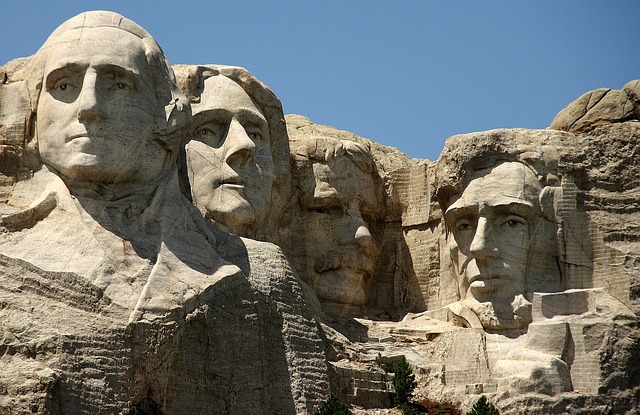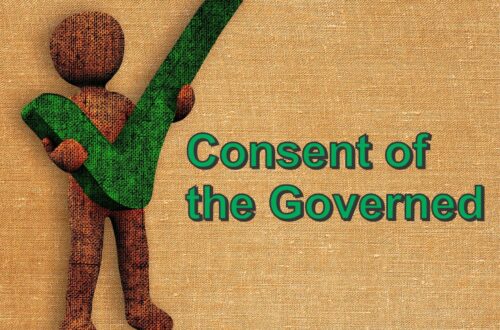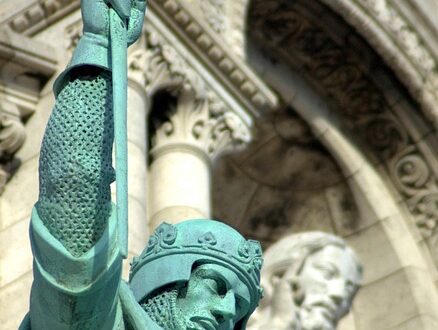The ratification of the United States Constitution in 1788 marked a pivotal moment in American history, signaling the transition from a loosely confederated group of states to a more unified nation. However, the path to ratification was challenging, as two opposing factions emerged with distinct views on the proposed form of government: the Federalists and the Anti-Federalists.
The Federalist Vision: A Strong Central Government
The Federalists, led by figures such as Alexander Hamilton, James Madison, and John Jay, ardently advocated for the Constitution’s adoption. They believed that a strong central government was essential to address the weaknesses of the Articles of Confederation, which had granted limited powers to the federal government. The Federalists argued that a robust national government would be better equipped to regulate commerce, defend the country from foreign threats, and promote stability and prosperity.
In their seminal work, The Federalist Papers, the Federalists laid out their vision for a balanced government with three distinct branches: the legislative, the executive, and the judicial. They proposed a system of checks and balances to prevent any Government branch from becoming too powerful, a concept that remains a cornerstone of American democracy.
Anti-Federalist Concerns: Protecting Individual Liberties
The Anti-Federalists, prominent among whom were Patrick Henry, George Mason, and Richard Henry Lee, expressed strong reservations about the proposed Constitution. They feared that a strong central government would infringe upon individual liberties and undermine the sovereignty of the states. They favored a more decentralized approach, with greater power residing in the states, which they believed were more responsive to the needs of their citizens.
In their writings, the Anti-Federalists voiced concerns about the lack of an explicit bill of rights, emphasizing the importance of safeguarding individual freedoms from government overreach. They also criticized the proposed national judiciary, arguing that it would possess excessive power and threaten state autonomy.
Key Points of Contention
The debate between Federalists and Anti-Federalists centered on several key issues:
- Balance of Power: Federalists favored a strong central government, while Anti-Federalists preferred greater power for the states.
- Individual Liberties: Anti-Federalists emphasized the need for a bill of rights to protect personal freedoms, while Federalists believed that the Constitution adequately safeguarded liberties.
- Checks and Balances: Federalists saw checks and balances as essential to prevent tyranny, while Anti-Federalists worried they would lead to gridlock and inefficiency.
- Role of the Judiciary: Federalists supported a robust national judiciary. Anti-Federalists feared it would infringe upon state sovereignty and individual rights.
The Legacy of the Debate
Ultimately, the Federalists prevailed, and the Constitution was ratified. However, the Anti-Federalists’ concerns about individual liberties resonated deeply, and they played a crucial role in the drafting and adopting of the Bill of Rights in 1791.
The debate between Federalists and Anti-Federalists highlighted the fundamental tension between the central government’s power and the protection of individual liberties. This pressure continues to shape American politics today. Their arguments provide valuable insights into the enduring challenges of balancing national unity with individual rights and the delicate balance of power within a democratic system.
Federalist Papers
- “A republic, or a government which the people administer themselves immediately, is not possible to be made durable unless the proportions of the legislative and executive powers be so adjusted to each other in their regular operation that their energies may never destroy the balance of the whole.” – James Madison, The Federalist No. 51
- “The powers delegated by the proposed Constitution to the Federal Government are few and defined. These powers are therefore granted in plain and intelligible words. It may be said with safety that no language can be more explicit than that of the Constitution.” – Alexander Hamilton, The Federalist No. 33
- “The powers vested by this constitution in the federal government are neither delegated by the individual states, nor expressly reserved to the states, but are reserved to the people.” – James Madison, The Federalist No. 46
- “The Constitution of the general government must be considered as the Constitution of the whole union. It must, in its operation, embrace all the states.” – Alexander Hamilton, The Federalist No. 13
- “In a republic, where the people frequently elect the legislative officers, errors and abuses will naturally be rectified in time by the public voice.” – James Madison, The Federalist No. 39
- “In the federal legislature, the people will not be so subject to the frauds of representatives as in state legislatures.” – James Madison, The Federalist No. 55
- “The people are the only true source of authority.” – John Jay, The Federalist No. 4
- “The constitution must be framed so as to promote the public good and not to answer the views of particular individuals or party.” – James Madison, The Federalist No. 54
Non-Federalist Papers
- “The Constitution ought not to be viewed with an eye to a temporary purpose, but as the permanent settlement of the government. We ought to provide for our posterity, and make such a government as will last for ages. The happiness of our children depends on the good or evil administration of our government.” – George Mason, The Virginia X
- “The happiness of the people is the true end of all government. It is the end of civil society, and the end of all constitutions formed by society.” – Melancton Smith, Letters from a Federal Farmer to the Republic of New-York
- “The proposed constitution appears to be too loose, and not sufficiently defined.” – Robert Yates, Brutus No. 3
- “The constitution is the supreme law of the land, and should be obeyed by every citizen.” – John Dickinson, Letters from a Farmer in Pennsylvania to the People of Pennsylvania
- “The constitution should be amended only by the people, not by the government.” – Richard Henry Lee, Letters from a Federal Farmer to the Republic of New-York
- “The constitution should be ratified by the people, not by the states.” – Patrick Henry, Speech to the Virginia Ratification Convention
- “The constitution should be framed so as to protect individual rights.” – George Mason, The Virginia X
- “The constitution should be framed so as to promote the common good, not the interests of a select few.” – Richard Henry Lee, Letters from a Federal Farmer to the Republic of New-York





